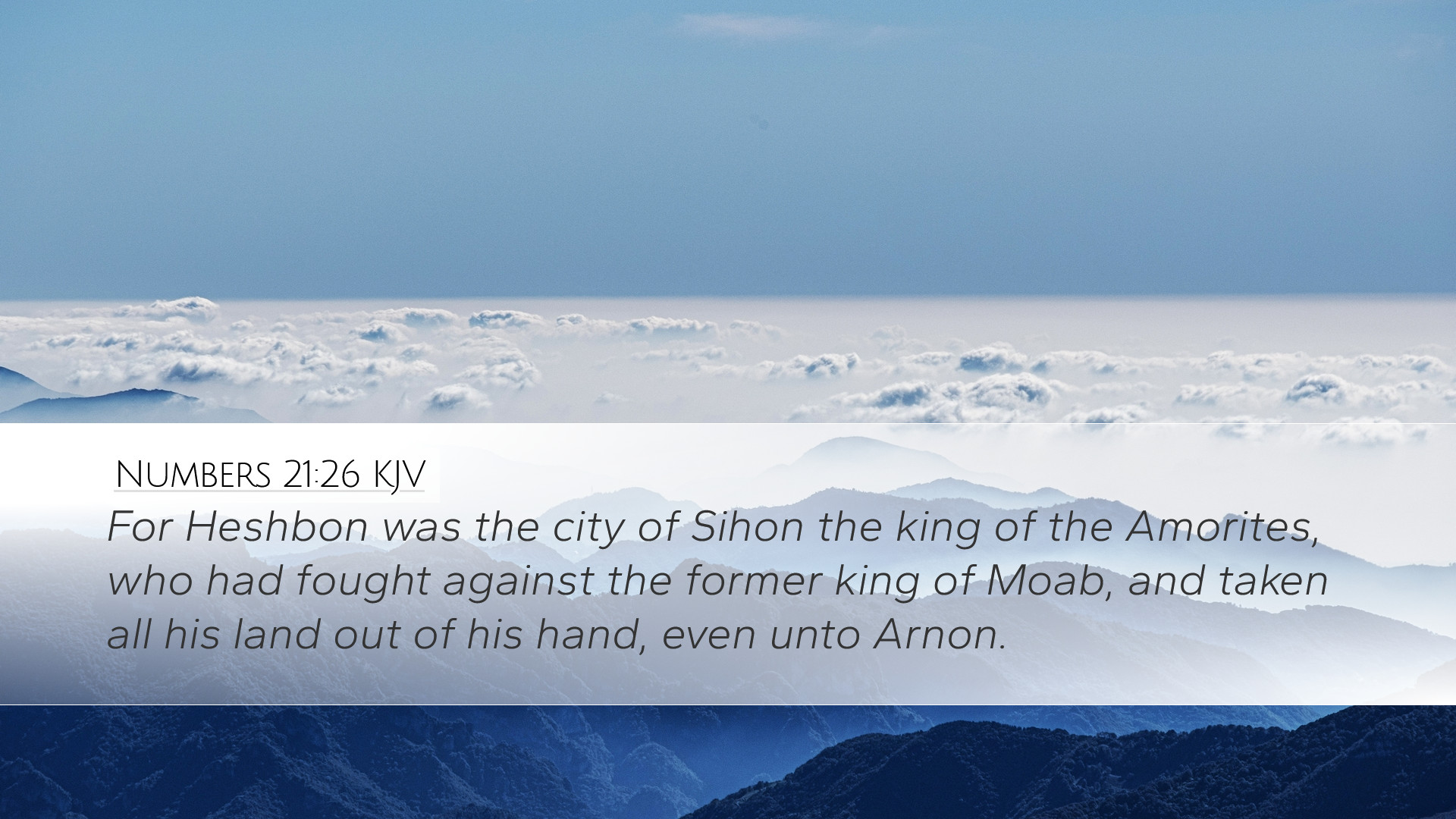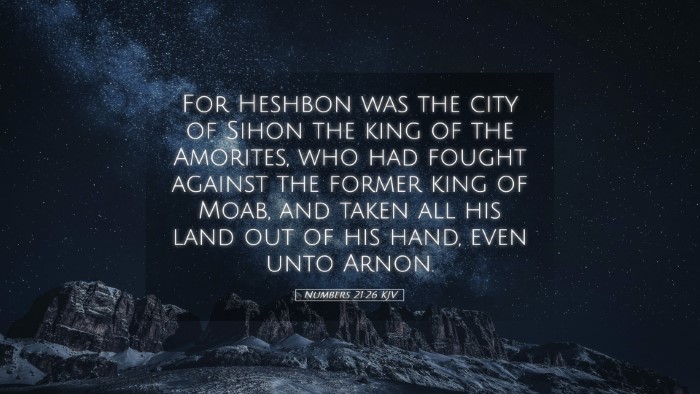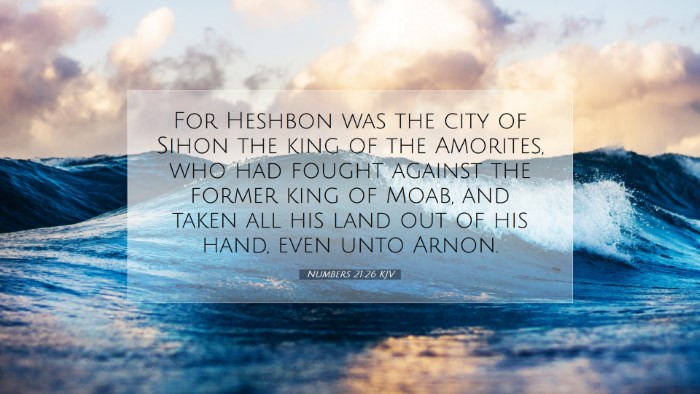Bible Commentary on Numbers 21:26
The verse Numbers 21:26 states, "For Heshbon was the city of Sihon, king of the Amorites." This passage reflects a significant moment in the history of Israel as they prepare to enter the Promised Land. It bears implications for understanding leadership, divine judgment, and the fulfillment of God's promises.
Contextual Background
The Israelites, after their escape from Egypt, faced various adversities and wilderness challenges. Numbers 21 narrates their journeys and conflicts with several nations. The mention of Heshbon and Sihon marks a pivotal transition in Israel’s narrative, illustrating the severity of God's judgment upon the Amorite king and the reclamation of lands destined for Israel.
Historical Significance
-
Geopolitical Landscape:
Heshbon, the capital of Sihon, was strategically important. The Amorites were dominant in this region, and their defeat was a precursor to Israel's conquest of Canaan.
-
Judgment Upon Idolatry:
Sihon’s defiance against Israel can also be viewed as a clear demonstration of divine judgment against those who oppose God’s people.
Commentary Insights
Matthew Henry's Commentary
Matthew Henry provides an expansive view of the text, emphasizing that Heshbon represents not merely a city, but a hub of idolatry and sin that was to be judged by God. He identifies Sihon as a figure of pride and opposition, whose downfall symbolizes the ultimate victory of God’s purposes. Henry argues that God's providential leadership is highlighted in Israel’s victories, which serve as warnings to those who oppose His will.
Albert Barnes' Commentary
Albert Barnes adds insights about the geographical and spiritual significance of Heshbon. He remarks that the city’s conquest represents the transition from oppression to divine promise. Barnes highlights the importance of understanding the historical context, focusing on how the victory over Sihon energizes Israel's faith. For Barnes, Heshbon’s capture is a demonstration of God's faithfulness in executing judgment and fulfilling His covenantal promises to Israel.
Adam Clarke's Commentary
Adam Clarke offers a detailed analysis of the cultural and social situation surrounding Heshbon. He discusses the lifestyle of the Amorites, portraying them as morally corrupt and idolatrous. Clarke notes that the city was a representation of disobedience and rejection of God. He emphasizes the theological implications of this conquest, which signify God's commitment to His covenant with Abraham, Isaac, and Jacob.
Theological Implications
The verse conveys profound theological themes that resonate throughout the Scriptures. Here are a few key points highlighted by the commentators:
-
Divine Justice:
God’s sovereignty is evident in the judgment of Sihon, illustrating that no power can withstand the Almighty. This serves as a reminder of the consequences of sin and disobedience.
-
Hope for the Faithful:
For Israel, the conquest of Heshbon symbolizes hope and serves as affirmation that God is with them. It's a critical reminder of God's intervention in history for the benefit of His people.
-
Preparation for Possession:
This verse marks a transition from wandering to inheritance, underscoring the fulfillment of God's covenant promises. Churches today can draw parallels with their journey of faith towards spiritual inheritance.
Application for Modern Readers
This biblical narrative speaks to contemporary believers in various ways:
-
Faith in Adversity:
Pastors and leaders are reminded to inspire faith within their congregations, illustrating that God often uses trials for greater purposes.
-
Understanding Judgment:
Believers are called to examine their lives and communities against the backdrop of divine justice and mercy.
-
Inheritance and Promise:
This passage encourages a sense of inheritance; as God's people, believers can expect His faithfulness to steer them into the promises laid before them.
Conclusion
Numbers 21:26, while a simple depiction of a city's name and its ruler, is a profound reminder of God’s justice, faithfulness, and the unfolding of His redemptive plan. It invites deeper reflection from scholars, theologians, and lay believers alike, urging them to see within the text both a historical event and a grand narrative of God's ongoing work in the lives of His people.


